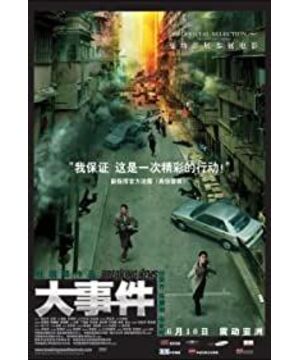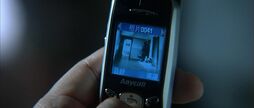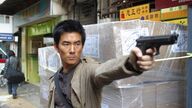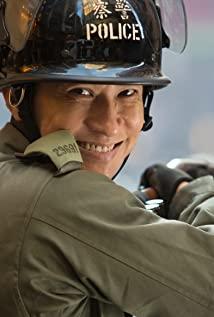In the high-level meeting that began immediately, a young female police superintendent suggested that because the image of the police was damaged through the media, a show broadcast live by the media must be used to restore the image. The chief accepted the idea and put her in charge. When faced with a crisis, the Hong Kong police can put aside the level restrictions and traditional thinking, give full play to the power of the media, establish a strategy of comprehensive disclosure to the media, and choose to use crisis management to avoid danger. And can make quick responses, on the basis of acknowledging the crisis, make full use of the media, make adequate preparations, and lay the foundation for the successful restoration of the image of the police force in the future.
From the beginning to the end, Superintendent Fang has been focusing on the goal of "reshaping the image of the police force and restoring the confidence of police officers", choosing to show the positive image of the Hong Kong police from various aspects, adapting to the changing environment. From the moment the show started, she used video to report the current situation to the media, and she also called in a professional public relations department for assistance. It shows that she is fully prepared and waits patiently, so she can carry out extensive public relations actions.
In response to the low efficiency and uncoordinated negative image of the police handling the case, the Public Relations Department "filmed" the police force's brave attack and sent it to the TV station. Arriving at the robbers' den, the staff at the scene were also in order. Of course, all this was under the live broadcast of the media. At the same time, Superintendent Fang wrote a press release in advance, and asked the public relations department to notify the media after adjustment, and held a press conference every 30 minutes, which reflected the public relations requirements of real-time and frequent, and the controllability was also improved. strong. Of course, this also provides the robbers with the opportunity to use the media to counterattack to a certain extent.
In order to fully reflect the good relationship between the police and the people, when the police took the old man downstairs, they did not know whether they planned it intentionally or not. The residents interviewed by the reporter, without exception, had good things to say about the police. However, accidents always happen so suddenly. When the police force a breakthrough and a firefight occurs, the gangster detonates a grenade, causing an explosion. Due to the falsely exaggerated image of the police before, and the gangsters uploading pictures of the police's losing ground through the Internet, the media turned their backs instantly and criticized the police for being dishonest. One detail: A police spokesman said there was a minor explosion upstairs that turned into a serious explosion by reporters. It shows that the media still has an antagonistic stance against the police. This reflects a failure of Fang's public relations strategy: to cover up the truth and think that he can fool the media. As a result, the gangsters took the opportunity to put them together. This shows that when we deal with crises, we must be consistent and consistent, and communicate with the media in a sincere way.
Of course, the police also realized this, so they wanted to divert the media's attention. Then, a big brother-level figure came out to support the police and scold the gangsters, effectively reducing the negative impact of the explosion just now.
When the gangsters showed their meals on the Internet to show preferential treatment to the hostages, the police immediately took relevant actions. She asked the people in the public relations department to prepare the best lunch and distribute it to every police officer, and let the reporters also have a share, and let the reporters take pictures, reflecting the spirit of caring and caring. One of the better points is that Superintendent Fang took into account the need to show the "human" side of the police, and laid the groundwork for a complete change in the image of "begging police" in the future. This reflects the continuity of crisis PR.
The previous reporter only paid attention to the "surrender of the police", but ignored the sacrifice of another policeman. In order to restore the image of the police, Superintendent Fang played a very good "humanitarian card". Borrowing the characteristics of the media and the public's sympathy for the weak and their willingness to provide public opinion support for the weak, followed by the foreshadowing of "the police are human beings", to further transform the image of the surrenderer. Pay attention to this process: first there is a video clip of the family members of the deceased police officer crying; then there is the unfortunate experience of a policeman who was hit by a stray bullet and had to be amputated; finally, it was specially arranged to interview the policeman begging for mercy, and also Invite his wife and their infant child to appear on TV together. During the interview, the policeman expressed his heartfelt emotion: Police officers are also human beings, and they are also afraid. At the juncture of life and death, his first thought was that he had family members who needed him to take care of him, and he could not give up in vain, and said confidently: "I am not wrong. I did not violate any regulations. We have never advocated taking risks, and I have to take good care of my wife and family. My son who just turned a month old, if I want to make a new choice, I will still do that." These words of family affection immediately reversed the public's views on this greedy policeman and even the entire Hong Kong Police Force. A coward becomes a hero, depending on how the media shows it. In the words of Superintendent Fang: "Whoever uses the media is the hero."
In the end, although it was too early to say that the mission was successful, it was destroyed by the subsequent explosion. However, despite the fearlessness of Superintendent Fang when he was hijacked and the relentless pursuit of Inspector Zhang Zhiheng, the media still stood on the side of the Hong Kong police and said good things for the Hong Kong police, which basically changed the image of the Hong Kong police. I have to say that Superintendent Fang's big-picture concept is an important factor in the success of this crisis public relations.
Overall, the police show was quite successful, basically changing the image of the police. But there are still many areas to improve. For example: (1) The channel for gangsters to communicate with the outside world should be cut off, because the police report cannot be the whole of the facts, and it is likely to be used by the gangsters, causing public distrust (2) The relationship between the superior and the subordinate police officers should be handled well , and can form an "extraordinary leading group" in time in the face of a crisis, saving time (3) forming a good relationship with the public and not being rude (4) should promptly select a lobbying group, let reporters stand in the perspective of the police, at least they should report objectively, not stand on the opposite side.
Summary: We should learn from the Hong Kong police's approach to dealing with problems in a comprehensive, calm and agile manner, and dialectically learn from experience, make up for deficiencies, and prepare for smooth crisis management in the future.
View more about Breaking News reviews











